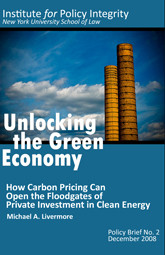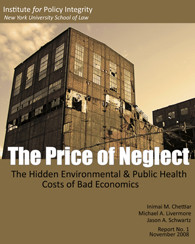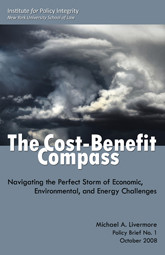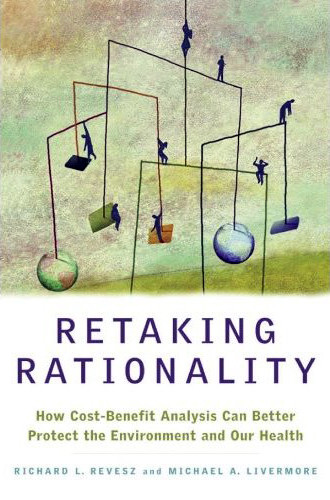The Institute for Policy Integrity produces a variety of publications. Our research reports develop in-depth research on our core issues, while our policy briefs and issue briefs provide focused analysis on more timely or particular topics. Our academic articles and working papers offer original scholarly research and analysis from established experts as well as fresh new voices.
Latest Publications
-

Unlocking the Green Economy
How Carbon Pricing Can Open the Floodgates of Private Investment in Clean Energy
Unlocking the Green Economy: How Carbon Pricing Can Open the Floodgates of Private Investment in Clean Energy calls for the Obama Administration to implement carbon pricing as a necessary step to transition to a green U.S. economy.
-

The Price of Neglect
The Hidden Environmental and Public Health Costs of Bad Economics
This report examines the regulatory failures of the Bush years on issues as wide-ranging as climate change and workplace safety, and concludes that these failures did not arise because of an overuse of economics, but because economic and scientific evidence was ignored.
-

The Cost-Benefit Compass
Navigating the Perfect Storm of Economic, Environmental, and Energy Challenges
The Cost-Benefit Compass: Navigating the Perfect Storm of Economic, Environmental, and Energy Challenges discusses how the next administration can use cost-benefit analysis to address the three great interrelated challenges facing the country.
-

Cause or Cure?
Cost-Benefit Analysis and Regulatory Gridlock
In Cause or Cure?: Cost-Benefit Analysis and Regulatory Gridlock, Michael A. Livermore argues that cost-benefit analysis can be used to overcome regulatory paralysis. An earlier version of this working paper was presented at the Breaking the Logjam Conference at NYU Law in the spring of 2008.
-

Retaking Rationality
How Cost-Benefit Analysis Can Better Protect the Environment and Our Health
In Retaking Rationality: How Cost-Benefit Analysis Can Better Protect the Environment and Our Health (Oxford University Press, 2008), Dean Richard L. Revesz and Michael A. Livermore argue for a more rational approach to cost-benefit analysis and regulation. They show how traditional cost-benefit analysis tends to overestimate costs and underestimate benefits, leading to less-than-optimal levels of regulation.
